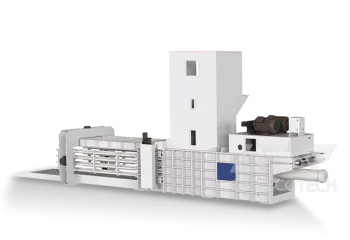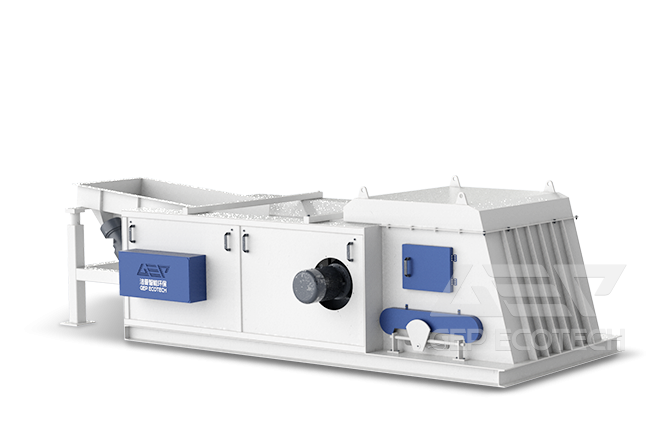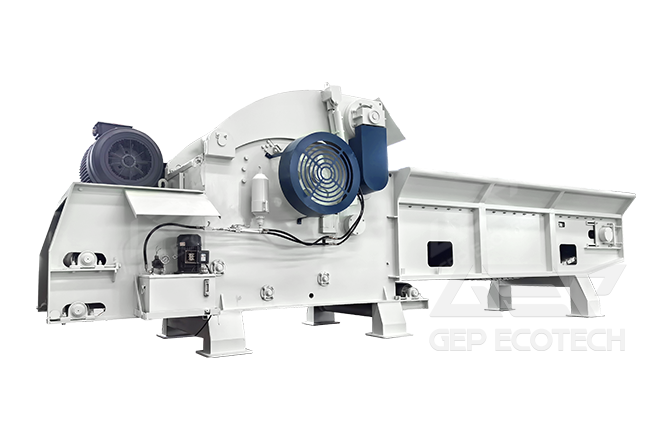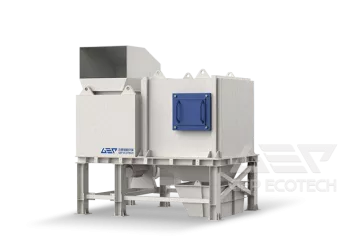The amount of municipal solid waste (MSW) generated has been increasing year by year, causing tremendous pressure on the environment and resources. Traditional waste disposal methods can no longer meet the needs of environmental protection and resource recycling. As an efficient waste sorting equipment, eddy current separators have gradually shown their unique advantages in the field of municipal solid waste treatment.
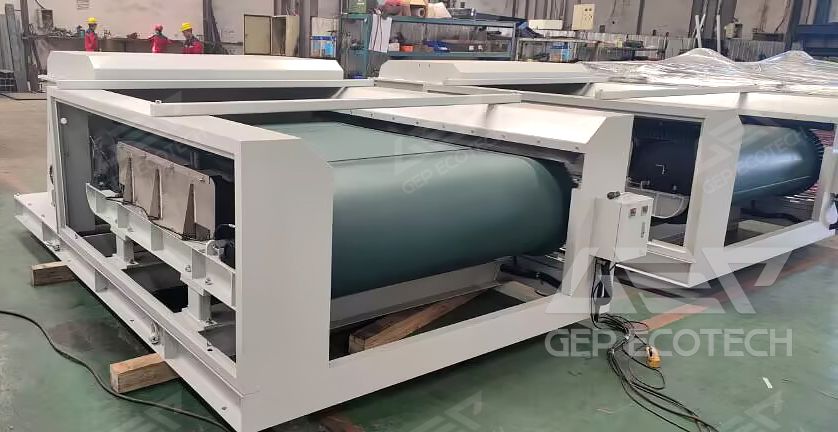
Working Principle of Eddy Current Separator
The Eddy Current Separator operates on the principle of electromagnetic induction. When a conductor (e.g., non-ferrous metals) passes through a changing magnetic field, eddy currents are induced in the conductor. These eddy currents generate their own magnetic field, which opposes the original magnetic field, resulting in a repulsive force that ejects the conductor from the non-metallic waste stream.
The ECS typically consists of a rotating drum or belt equipped with strong permanent magnets or electromagnets. As waste material is fed onto the belt, non-ferrous metals such as aluminum, copper, and brass are repelled and separated from the rest of the waste stream, which continues on its path to be sorted further or disposed of.
Advantages of Using Eddy Current Separator
- High Efficiency: ECS is highly effective at separating non-ferrous metals from mixed waste streams, significantly improving the purity and quality of the recovered materials.
- Versatility: ECS can handle a variety of waste streams, including MSW, construction and demolition debris, electronic waste, and automotive shredder residue, making it a versatile tool in waste management and recycling operations.
- Economic Benefits: By recovering valuable metals like aluminum and copper, the ECS helps reduce the need for virgin materials, providing economic benefits to recycling facilities and reducing production costs for manufacturers.
- Environmental protection: The eddy current separator uses physical methods to sort garbage without adding any chemical agents, which reduces pollution to the environment. At the same time, by recycling resources such as non-ferrous metals, the recycling of resources is realized, and the pressure on the exploitation of natural resources is reduced.
- Intelligence: The eddy current separator is equipped with an intelligent control system, which can monitor the operating status and recycling effect of the equipment in real time, and realize the intelligent management of the production process. At the same time, the equipment is simple to operate and easy to maintain and maintain.
- Low Operational Costs: ECS systems are typically robust and require minimal maintenance, leading to low operational costs and long service life.
Applications in Municipal Solid Waste Processing
- Material Recovery Facilities (MRFs): In MRFs, ECS is used to recover non-ferrous metals from mixed MSW. This improves the efficiency of the recycling process and ensures that valuable materials are not lost to landfills.
- Waste-to-Energy Plants: Before incineration, ECS can be used to extract non-ferrous metals from waste, ensuring that metals are recycled rather than burned, which can cause damage to incineration equipment and reduce energy recovery efficiency.
- Composting Facilities: By removing non-ferrous metals from organic waste streams, ECS helps produce cleaner compost and prevents metal contamination in the final product.
- Electronic Waste Recycling: ECS is crucial in the separation of valuable metals from e-waste, enabling the recovery of high-value materials and reducing environmental pollution from improper disposal.
In short, as a highly efficient garbage sorting equipment, the eddy current separator for municipal solid waste (MSW) processing will play an increasingly important role in the field of environmental protection and resource recycling. We should actively promote and apply eddy current separator technology to make greater contributions to achieving sustainable development.


